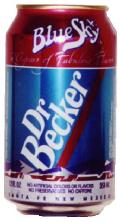|
| ||
course participants course announcements about this wiki questionnaires and assignments slides of presentations course schedule related resources Gerhard Fischer Hal Eden Mohammad Al-Mutawa Ashok Basawapatna Lee Becker Jinho Daniel Choi Guy Cobb Holger Dick Nwanua Elumeze Soumya Ghosh Rhonda Hoenigman elided#1 Dan Knights Kyu Han Koh elided#2 Yu-Li Liang Paul David Marshall Keith Maull Jane Kathryn Meyers John Michalakes Michael Wilson Otte Deleted Page Joel Pfeiffer Caleb Timothy Phillips Dola Saha deleted |
Brief Questionnaire for the Participants of the CourseDoctoral Level Independent Study— CSCI 7900-903 due: Tuesday, September 4, 2007; 9am on the SWIKI class websitehttp://swiki.cs.colorado.edu:3232/phd-intro-2007/1. your name: Lee Becker (There is no middle name, despite the fact that my CUConnect login is 'llbecker') 2. the intended topic area for your PhD: Natural Language Processing, Semantics, Cognitive Science, possible Machine Translation 3. most important reason for you personally to get a PhD  A PhD is an extension of my value around lifelong learning. Hopefully a PhD will provide avenues for me to continue to grow and express my creativity, wherever my career and life may take me. Also, Blue Sky soda produces a knock-off of the ever-popular beverage Dr. Pepper known as Dr. Becker. Since learning of this sweet elixir's existence, I have dreamed of one day becoming a professor, filling a mini-refigerator with nothing but Dr. Becker, and offering them to students who visit me during office hours. 4. name three computer scientist which YOU consider most important for the field and what you consider their contribution 4.1. Alan Turing - The name Turing is practically synonymous with computer science. The Turing Test, the Universal Turing Machine, the Turing awards: Alan Turing had his hands in everything. 4.2. Jon Von Neumann - Like all greats his contributions were not limited to one field. In addition to creating the basis for modern computer architectures, he played key roles in developing theories in cellular automata, set theory, quantum physics, economics, and more. 4.3. Noam Chomsky - Although he is linguist, and not a computer scientist, his work with formal grammars is especially relevant in compiler construction, automata theory, computational linguistics, and artificial intelligence. 5. name the three most important, professionally relevant books which you have read 5.1. Introduction to Algorithms by Thomas H. Cormen, Charles E. Leiserson, Ronald L. Rivest, and Cliff Stein, 5.2. Computer Architecture: A Quantitative Approach by John L. Hennessy and David A. Patterson 5.3. Gödel, Escher, Bach: An Eternal Golden Braid By Douglas R. Hofstadter 6. assuming you will collaborate with researchers and explore ideas outside of CS during your PhD studies — which domains are the most likely candidates for this effort 6.1. Linguistics 6.2. Psychology 6.3. Cognitive Science 7. briefly characterize your own digital literacy: 7.1. which programming language do you know (mention them in an order of decreasing familiarity) C++, C, Perl, shell (bash, ksh, sh, etc), Expect, HTML, Java, Assembly Language, SQL, Pascal, Basic 7.2. describe the top three projects (problem, programming language used, for what) which you have done in the past 1. At Intel and Hewlett Packard I worked on VLSI CAD Tool Infrastructure. Because circuit design data for enterprise-class microprocessors is massive (billions of transistors) and massively hierarchical analysis must be done on flattened circuit design models. I was part of a project to develop a generic flattening engine that could be leveraged across the full CAD tool suite. C++ 2. Post-silicon (post-production) verification of microprocessor architecture requires many trillions of cycles to provide confidence in the design. I was responsible for developing the firmware based test environment to enable our checkers and code generators to exercise the processors. C++, C, IA-64 Assembly, Perl, shell, Expect 3. My undergraduate engineering senior design project was to develop a PalmOS based application for interacting with automobile On-Board-Diagnostics (OBD). C 7.3. which are the top three applications that you are familiar with (e.g. Photoshop, Canvas, Dreamweaver, iMovie, ….)? 1. vi 2. Photoshop 3. Word 8. List your three favorite topics that you would like to see discussed in this course! 8.1. Advice on becoming a successful Computer Science graduate student and researcher 8.2. Computer Science and its interactions with other disciplines (linguistics, cognitive science, engineering, education, etc...) 8.3. Specific details on requirements and expectations of PhD students. Last modified 31 August 2007 at 2:31 pm by LeeBecker |